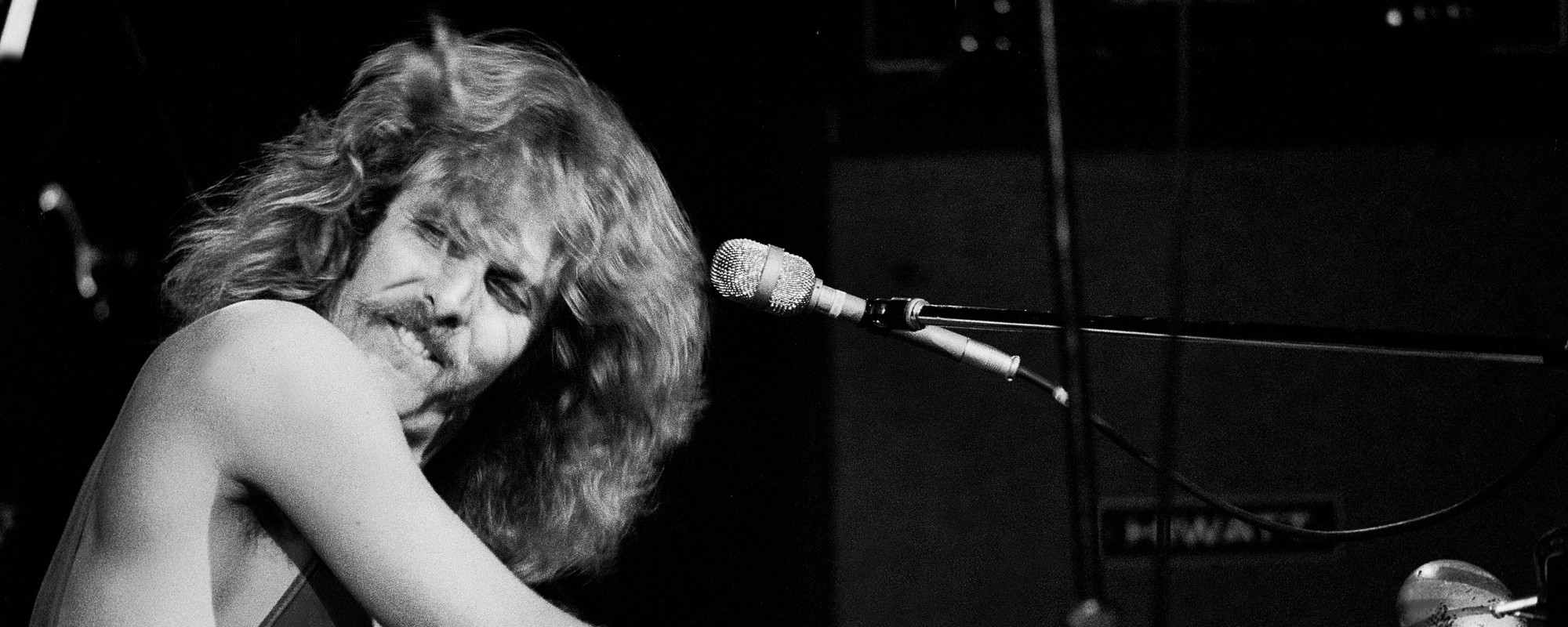Yacht Rock is defined loosely based on parameters such as the style of the music and the time when it was released. That’s why Paul Davis’ “I Go Crazy,” a sensitive soft-rocker that hit the Top 10 in 1978 and was released a year earlier, usually can be found on playlists and radio stations devoted to the genre.
Videos by American Songwriter
As an artist and persona, however, Davis didn’t fit smoothly into any one genre, in part because he never showed any inclination to stick with any style for too long. Here’s the story behind how “I Go Crazy” made him a household name, even though he really didn’t desire to be one.
Meridian’s Own
Paul Davis was born in Meridian, Mississippi, and carried a slow drawl of an accent, one that didn’t appear at all when he sang. During his heyday in the ’70s and early ’80s, he also wore his blonde hair long with a full beard, which wasn’t exactly the look of the singer/songwriters of the day.
Maybe his look was partly to deflect attention, because for all his writing talents, Davis showed no inclination to play the pop star game, despite the efforts of those around him to get him to do so. He didn’t like playing live, and he refused to be bottled up in any one particular genre. Just as soon as he’d score a minor hit (such as “Ride ‘Em Cowboy” in 1975), he’d be onto something different.
Despite this somewhat carefree approach to his career prospects, Davis found himself on the popular Bang record label. Feeling out of place as an artist with what was going on in the music scene, he briefly thought he’d be better suited writing material for others to cover. Which is, ironically, how he ended up stumbling upon the song that would earn him his biggest fame to that point.
“Crazy” Times
Davis had been impressed by the 1976 Lou Rawls hit “You’ll Never Find Another Love Like Mine.” He decided he’d write a song that would be ideal for Rawls to sing. That’s when he came up with “I Go Crazy,” even doing a pretty detailed demo so it would have the best chance of impressing Rawls when it was presented to him.
Only it never got that far. His manager, upon hearing the song, insisted Davis shouldn’t give it away, and instead impressed upon him to record it himself. Davis obliged, heading back into the studio with producer Phil Benton to finish the track, which didn’t take much work since they used much of what Davis had done with the demo.
Perhaps because Davis was far from a well-known artist to much of the listening public, it took “I Go Crazy” its sweet time to find its footing on the charts. And then it took even longer for it to leave the public’s consciousness. All totaled, the song spent 40 works in the Billboard Hot 100, which at the time was a chart record.
What is the Meaning of “I Go Crazy”?
“I Go Crazy” paints a picture of a guy who truly believes he’s recovered from the loss of a former lover. But it turns out he’s just kidding himself, which becomes clear to him when he runs into her. At first, he plays it cool: Guess you’ll be glad to know / That I’ve learned how to laugh and smile / Getting over you was slow.
He also tells her how he knows she’s moved on with someone who fulfills her needs in a way that he wasn’t able to. But inside, he finds his dormant feelings have once again begun to stir. I go crazy, Davis sings in the chorus. That old flame comes alive, it starts burning inside.
Paul Davis’ career took some more unexpected turns from that point forward. He briefly embraced computerized music, came back to the pop scene for a couple more hits in the early ’80s, and turned into an expert country songsmith as well. “I Go Crazy” remains his soulful signature song, one that, thankfully, he was convinced to keep so he could do it soulful justice.
When you purchase through links on our site, we may earn an affiliate commission.
Photo via Facebook













Leave a Reply
Only members can comment. Become a member. Already a member? Log in.